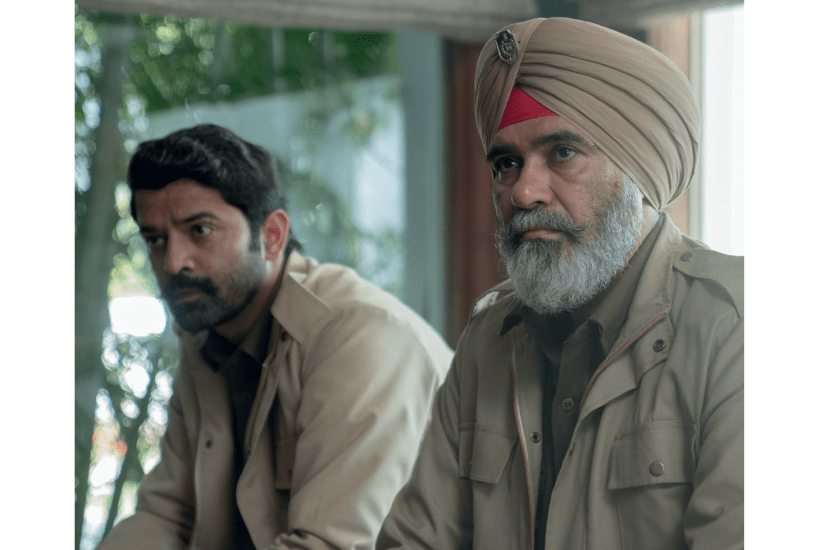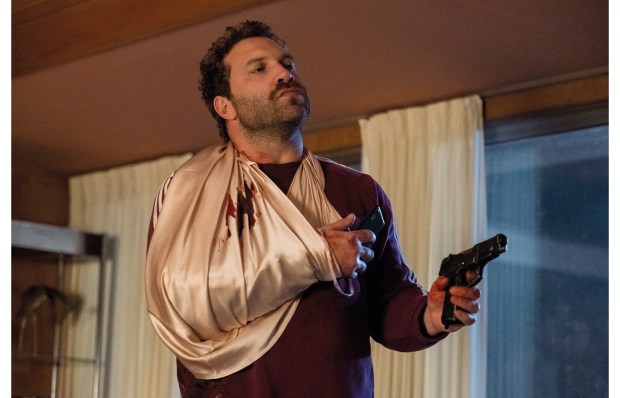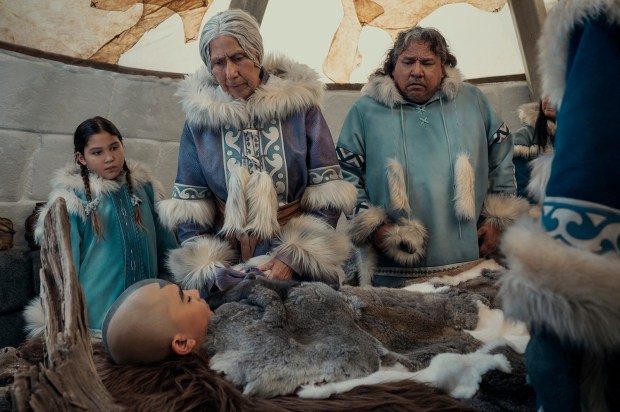It has been quite some time since I’ve been able to bear watching UK crime drama. All right, I do cheat occasionally with series like the one featuring the delightfully grumpy, chain-smoking Cormoran Strike, but on the whole I can’t stand the mix of predictability and implausibility: all the goodies will be female and/or ethnic; the murderer will always be white, middle class and male; no one ever gets arrested for misgendering someone on Twitter because in the parallel universe of cop TV the police still actually think it’s their job to solve crimes.
So, your options are either to watch classic episodes of The Sweeney or to find a cop series from one of those countries where the old values still prevail. India, for example. Here – well, certainly in the Punjab, setting for Netflix’s Kohrra – you won’t find a rainbow-painted patrol car anywhere in sight. Instead, they trundle around in manly khaki-coloured Jeeps, dress in smart khaki uniforms, help themselves to bottles of whisky from behind the bar of dodgy clubs they’re investigating and encourage witnesses to be more helpful during interrogation by squeezing them hard on the testicles. This is pre-Macpherson report policing at its most vauntingly unreconstructed.
Sometimes, you wonder if our heroes Balbir (Suvinder Vicky) and Garundi (Barun Sobti) push things a bit too far in their zeal to see justice done. The series opens with the discovery of a body in some fields. So what’s the first thing they do? Beat up the hapless fellow who accidentally found the body (while seeking a quiet place to shag his girlfriend). And then, when that doesn’t work, they round up all the known drug addicts in the area, drag them to the police station, get them to strip to their underwear and thrash them with sticks, just on the off chance that it was one of them that dunnit.
This is one of the things I love about foreign TV: trying to make sense of the alien cultural parameters. With Japanese and Korean TV, for example, I’m sometimes at a loss as to whether any given scene is supposed to represent high comedy or heartrending tragedy or some satirical variant somewhere in between. In the case of Kohrra, it took me time to work out with which characters our sympathies are meant to lie. Garundi, the grizzled detective’s young sidekick, for example, is clearly a wrong ’un by modern UK crime drama standards, what with his uncouthness, rule-bending and thuggery. But in Punjabi terms, you gradually come to realise, he’s just a bit of a lad who knows how to get things done.
And to be fair, he does seem to operate in a culture where nobody, anywhere, wants to help police with their inquiries. The body found in the fields belongs to an NRI (as expatriates – Non Resident Indians – are known), Paul, a London-based lawyer murdered on the eve of his arranged marriage. But no one wants to give any information that might help: not his parents, not his bride-to-be, not his fiancée’s thwarted lover, a disgruntled DJ who has posted a rude rap song on social media about what he thinks of his ex’s new man… Hence the need for all the testicle-squeezing.
Gradually, as is the way with this genre, regardless of what country you’re in, we learn that everyone is harbouring a terrible secret. And probably, by the time they’ve all been unravelled, the murder will make sense. At the moment – two-and-a-half episodes in – we’ve learned that Paul’s dad (a devout Sikh, as most of the characters are) never forgave his son for cutting his hair when he was living in Britain as a schoolboy; that there’s something dubious and significant about the white best man Liam (who has gone missing since the murder); that there is much bitterness involving family land disputes; that the bride is a bit of a gold-digger, understandably thrilled to have landed a mate rich enough to take her on honeymoon to Machu Picchu and give her a life – as so many middle-class Punjabis clearly covet – beyond the backwaters of northern India.
But for me, at any rate, all that labyrinthine plotting is incidental to the local colour: the dilapidated squalor in which poorer Indians live (basically a mattress in a dingy room), the extravagant domestic violence, the routine chai-drinking and that fantastically delicious-looking samosa (so much crispier-looking than you get over here), the attitudes to sex, the junior police girl with her addiction to her iPhone and rich puddings, the Mahindra truck drivers, the small-business owners, the casual anti-white racism, the snobbery and aspirations, the care and perfectionism that go into putting on a turban.
Created by a well-established team, Gunjit Chopra and Sudip Sharma, arrestingly shot with a grimy, in-your-face immediacy, well acted and authentic (the lead characters are based on real-life cops observed by Chopra), this series has been a number-one hit in India. But it really deserves a much bigger circulation than that.
Got something to add? Join the discussion and comment below.
Get 10 issues for just $10
Subscribe to The Spectator Australia today for the next 10 magazine issues, plus full online access, for just $10.
You might disagree with half of it, but you’ll enjoy reading all of it. Try your first month for free, then just $2 a week for the remainder of your first year.















Comments
Don't miss out
Join the conversation with other Spectator Australia readers. Subscribe to leave a comment.
SUBSCRIBEAlready a subscriber? Log in